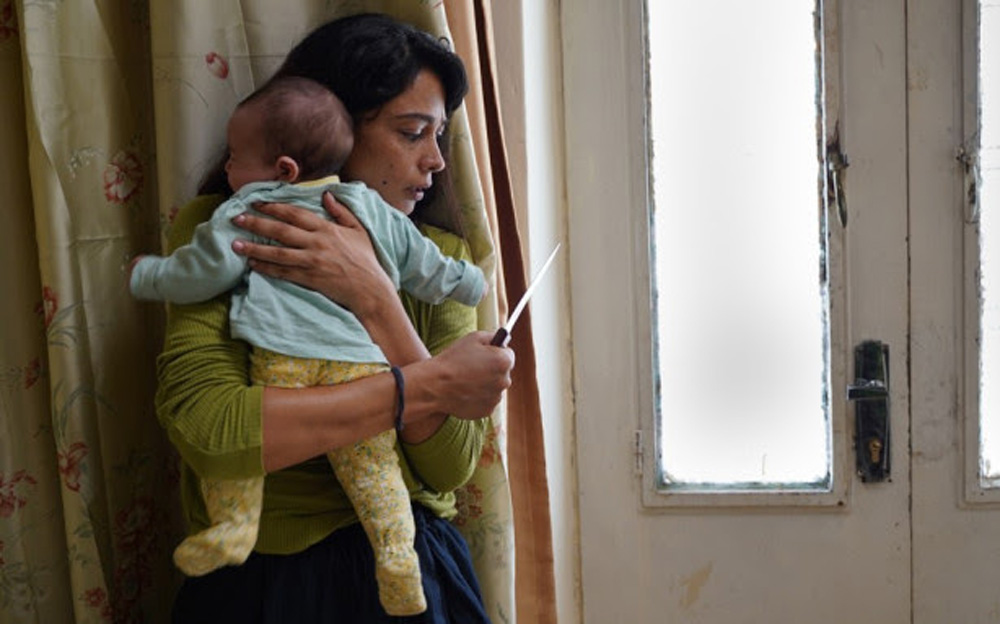“Why didn’t you get your hair cut?” Yosef asks his wife Reem (Maisa Abd Elhadi) innocently enough in “Huda’s Salon,” aware that she was intending to get a trim during her day out with their baby daughter Lita. There is no good answer for him other than for Reem to say she just didn’t have the time, knowing there’s a bit of real jealousy in every joke he cracks about her having an affair with another man and too scared to tell him about what really happened, though he’ll learn soon enough that Huda (Manal Awad), her typical hairdresser has been taken in by the Palestinian resistance movement after learning she’s been working for the Israeli Secret Service.
Reem is far from alone in between being in a rock and a hard place, but she becomes the focus of the latest thriller from “Paradise Now” director Hany Abu-Assad when for some reason Huda declines to give her up, having been ensnared by the Secret Service as an informant and blackmails others to maintain some semblance of freedom. This could easily be Nazi Germany of the 1930s or America during the Red Scare of the 1950s, but “Huda’s Salon” unfolds in Bethlehem circa 2002 when construction started in earnest on a 500-mile wall around Palestinian territories that may have made it easier to see where Israel wanted the lines drawn, but shifted warfare underground as both sides sought to purge anyone from their ranks who were seen in any way disloyal or defiant towards their nationality.
Much of “Huda’s Salon” takes place in bunkers and backrooms when no one can fully be themselves in public, all well-aware that someone is likely watching them at any given time and fearful of giving the wrong impression, and Abu-Assad brings to bear the mastery that’s been cultivated over increasingly technically ambitious films such as “The Idol” and “The Mountain Between Us” on an intimate scale where moving through fraught spaces are a reflection of where Reem and Huda’s heads are at. The two aren’t ever going to see each other again after the film’s introduction, with Huda interrogated by a leader in the resistance, trying to ascertain more information about all the former clients she’s turned into informants, while Reem goes about her routine, but might as well be in prison, knowing the mere mention of her name could end her life if her husband doesn’t kill her first if he finds out she’s less than forthcoming.
Making the such psychological parameters specifically for women tactile not only proves to be a novel insight into life under occupation, but the foundation of a strong claustrophobic thriller that doesn’t require walls. Although the interrogation of Huda can play slightly theatrical as a battle of wits ensues over a table in a dark room, with only one harsh light shining upon her, the parallel experiences of the two women allow Abu-Assad to cover an extraordinary amount of ground in a taut 90 minutes, showing the panic that ultimately must’ve led Huda’s decision to become an informant when the film cuts back to Reem and the inevitable reality Reem faces no matter what choices she makes in spending time with Huda. At one point the latter tells her interrogator, “A scared woman is a cornered cat — scared but also scary,” and throughout “Huda’s Salon” seems to have it both ways.
“Huda’s Salon” will screen at the Toronto Film Festival in person on September 9th at 6 pm and September 17th at noon at the TIFF Bell Lightbox and virtually on September 9th and 17th, available in Canada. It will be later released by IFC Films.




